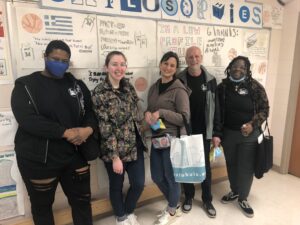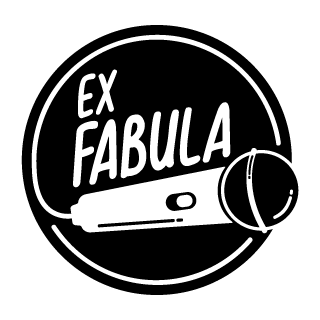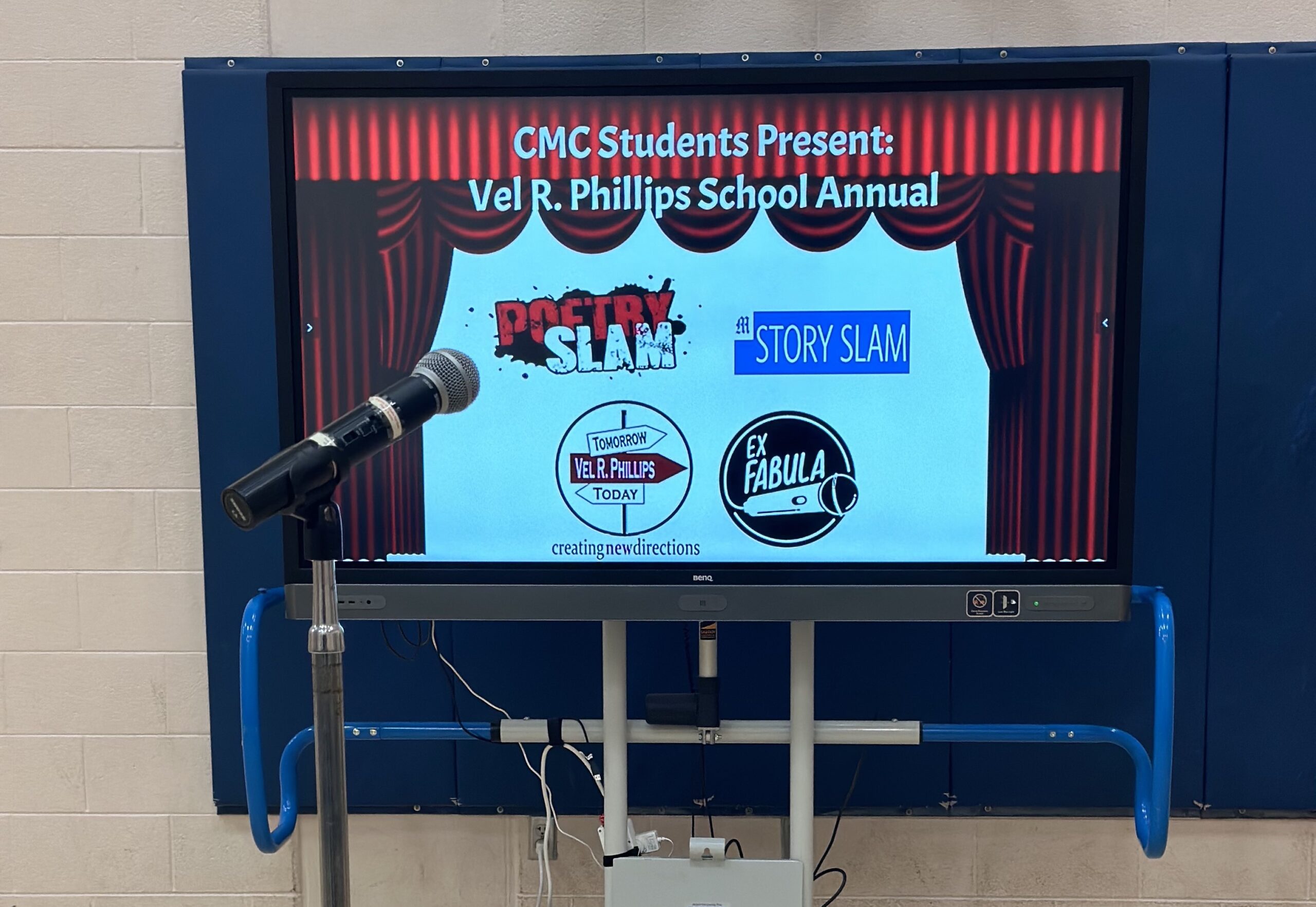
From left to right: Genie, Lauren, Megan, Mark, JJ
I worked with two groups of teenagers at Vel R. Phillps. Naturally, these students are gifted at speaking creatively. From my first workshop with them, I could feel the passion and in all the words that were spoken by youth. My role was aide to coaches leading the workshops. Although I was told certain things that pertained to the role, I quickly learned that I was there for the students’ behalf.
I spent my time talking with the students on a personal basis. My first few chats consisted of connecting with them about shared childhood experiences ranging from hanging with friends and family to playing games, funny school moments, and of course, racism. As I progressed through the weeks, my conversation with students moved to what’s something that ignites emotions to do something about common answers is violence and police brutality. That’s when the brainstorming began for a lot of them.
We shared poetry & stories of our childhood. One new thing that stood out is all of them had poems about the lived experience of being a black youth in America. Each story is different, but the common ground was rhymes of freedom & equality. I myself have the same shared experiences, so to hear it spoken with creativity and emotion from youth was something I didn’t have when I was their age. I felt moved to be a part of that process with the students. Giving youth the tools to use their words to create art that speaks volumes is only the tip of the iceberg in the fight against systemic racism.
In some of the workshops, of course, when working with youth, you have to steer students back on course. But there’s something special about watching a young person’s gears turn to think of how they want to build punchlines and selecting specific word choices to convey a message. During group sharing, I found myself snapping my fingers with lines that really resonated with me. These students know how to write with reason. I knew the slam was going to be good. The words that moved me to snap were “ can’t rob us for our knowledge.”
The StorySlam had many different kinds of folks there to listen as I glanced at the gymnasium. The MC ( Mark Weinberg) put a touch of intentionality into setting the tone for the audience with something along the lines of, “Usually, you’re the one doing the speaking, but today the roles are reversed.” Referring to the teen’s social workers and Vel Phillps faculty. Our first performer spoke of being a black kid with a dream and how he wants to spend his time outside having fun. But the reality is that he can’t do that because he says it “isn’t safe outside.” Again these kids know what they’re talking about because one performer said,” Milwaukee has a problem with segregation,” Which is a statistical fact. The common ground I mentioned earlier is that most of the pieces shared at the StorySlam are about systemic oppression. A teen saying with confidence ‘The American Dream is a lie”.
One thing for sure is Vel R. Phillps should be proud of these young people for speaking so rhythmically about their lived experiences, and I hope that they continue to offer them more opportunities to have their voices heard and celebrated.






Leave A Comment